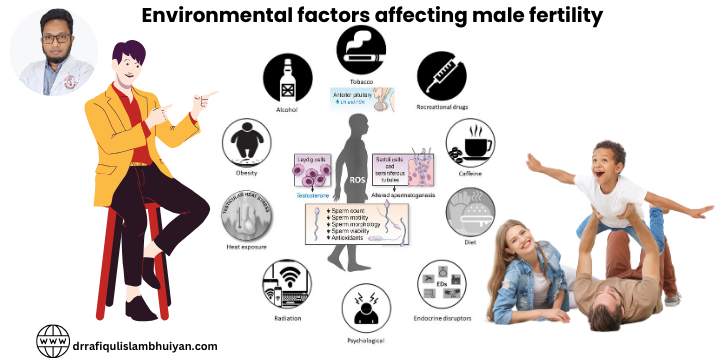
Environmental factors can have a significant impact on male fertility by influencing sperm production, quality, and overall reproductive function. Some of the environmental factors that may affect male fertility include:
It’s important to note that the impact of these environmental factors can vary among individuals, and not all men will experience fertility issues due to these exposures. For couples facing fertility challenges, it may be beneficial to assess and minimize exposure to potentially harmful environmental factors. Seeking advice from a healthcare provider or reproductive specialist can help identify specific concerns and guide appropriate interventions or lifestyle changes.
©2024.Dr. Md Rafiqul Islam Bhuiyan. All Rights Reserved.
